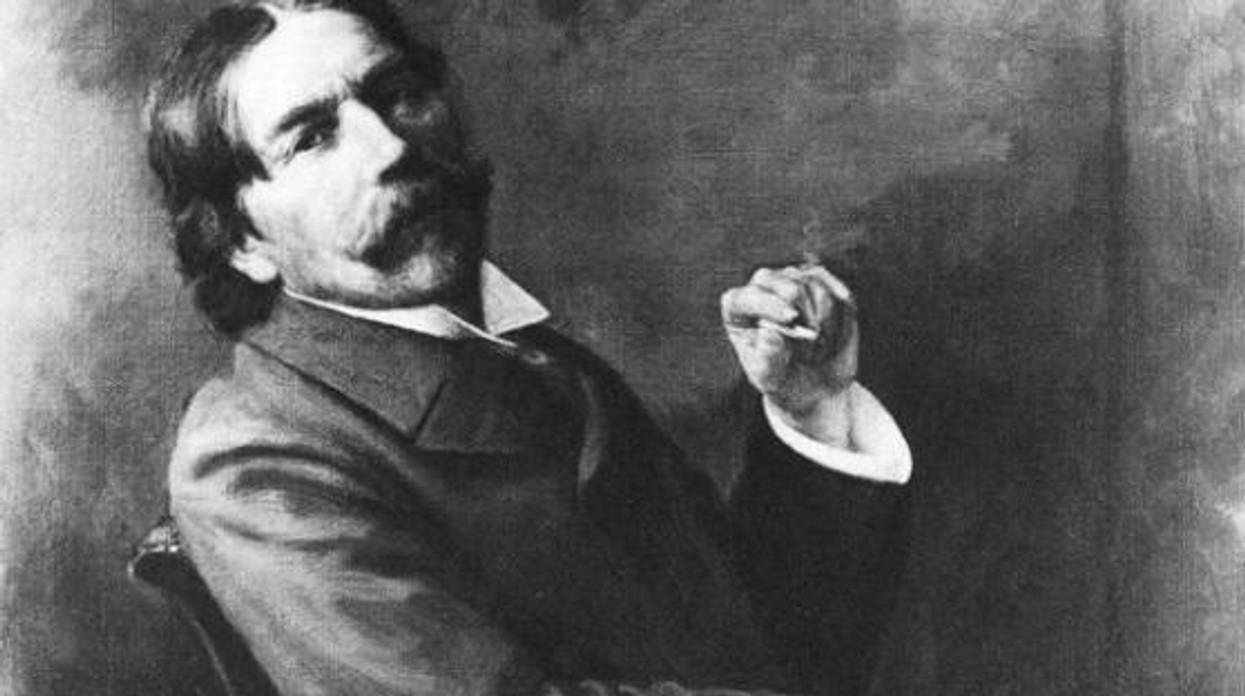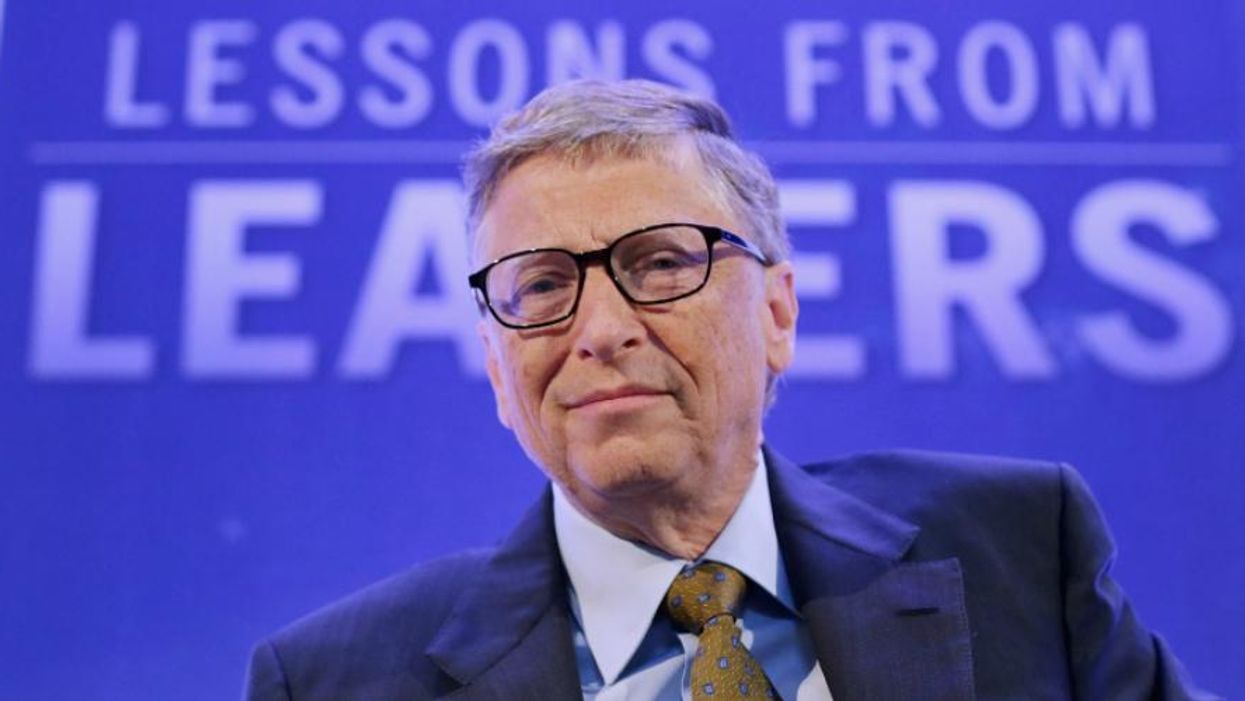Now, in America's second (bigger and better) Gilded Age, in a world of staggering inequality, believe me, it helps to read him again.
In his student days at Johns Hopkins, Yale, and finally Cornell, already a master of many languages, he studied anthropology, sociology, philosophy, and political economy (the old fashioned term for what's now called economics). That was back when economists were concerned with the real-life conditions of human beings, and wouldn't have settled for data from an illusory "free market."
Veblen got his initial job, teaching political economy at a salary of $520 a year, in 1890 when the University of Chicago first opened its doors. Back in the days before SATs and admissions scandals, that school was founded and funded by John D. Rockefeller, the classic robber baron of Standard Oil. (Think of him as the Mark Zuckerberg of his day.) Even half a century before the free-market economist Milton Friedman captured Chicago's economics department with dogma that serves the ruling class, Rockefeller called the university "the best investment" he ever made. Still, from the beginning, Thorstein Veblen was there, prepared to focus his mind on Rockefeller and his cronies, the cream of the upper class and the most ruthless profiteers behind that Gilded Age.
He was already asking questions that deserve to be raised again in the 1% world of 2019. How had such a conspicuous lordly class developed in America? What purpose did it serve? What did the members of the leisure class actually do with their time and money? And why did so many of the ruthlessly over-worked, under-paid lower classes tolerate such a peculiar, lopsided social arrangement in which they were so clearly the losers?
Veblen addressed those questions in his first and still best-known book, The Theory of the Leisure Class, published in 1899. The influential literary critic and novelist William Dean Howells, the "dean of American letters," perfectly captured the effect of Veblen's gleeful, poker-faced scientific style in an awestruck review. "In the passionless calm with which the author pursues his investigation," Howells wrote, "there is apparently no animus for or against a leisure class. It is his affair simply to find out how and why and what it is. If the result is to leave the reader with a feeling which the author never shows, that seems to be solely the effect of the facts."
The book made a big splash. It left smug, witless readers of the leisure class amused. But readers already in revolt, in what came to be known as the Progressive Era, came away with contempt for the filthy rich (a feeling that today, with a smug, witless plutocrat in the White House, should be a lot more common than it is).
What Veblen Saw
The now commonplace phrase "leisure class" was Veblen's invention and he was careful to define it: "The term 'leisure,' as here used, does not connote indolence or quiescence. What it connotes is non-productive consumption of time. Time is consumed non-productively (1) from a sense of the unworthiness of productive work, and (2) as an evidence of pecuniary ability to afford a life of idleness."
Veblen observed a world in which that leisure class, looking down its collective nose at the laboring masses, was all around him, but he saw evidence of something else as well. His anthropological studies revealed earlier cooperative, peaceable cultures that had supported no such idle class at all. In them, men and women had labored together, motivated by an instinctive pride in workmanship, a natural desire to emulate the best workers, and a deep parental concern -- a parental bent he called it -- for the welfare of future generations. As the child of Norwegian immigrants, Veblen himself had grown up on a Minnesota farm in the midst of a close-knit Norwegian-speaking community. He knew what just such a cooperative culture was like and what was possible, even in a gilded (and deeply impoverished) world.
But anthropology also recorded all too many class-ridden societies that saved upper-class men for the "honourable employments": governance, warfare, priestly office, or sports. Veblen noted that such arrangements elicited aggressive, dominant behavior that, over time, caused societies to change for the worse. Indeed, those aggressive upper-class men soon discovered the special pleasure that lay in taking whatever they wanted by "seizure," as Veblen termed it. Such an aggressive way of living and acting, in turn, became the definition of manly "prowess," admired even by the working class subjected by it. By contrast, actual work -- the laborious production of the goods needed by society -- was devalued. As Veblen put it, "The obtaining [of goods] by other methods than seizure comes to be accounted unworthy of man in his best estate." It seems that more than a century ago, the dominant men of the previous Gilded Age were, like our president, already spinning their own publicity.
A scientific Darwinian, Veblen saw that such changes developed gradually from alterations in the material circumstances of life. New technology, he understood, sped up industrialization, which in turn attracted those men of the leisure class, always on the lookout for the next thing of value to seize and make their own. When "industrial methods have been developed to such a degree of efficiency as to leave a margin worth fighting for," Veblen wrote, the watchful men struck like birds of prey.
Such constant "predation," he suggested, soon became the "habitual, conventional resource" of the parasitical class. In this way, a more peaceable, communal existence had evolved into the grim, combative industrial age in which he found himself: an age shadowed by predators seeking only profits and power, and putting down any workers who tried to stand up for themselves. To Veblen this change was not merely "mechanical." It was a spiritual transformation.
The Conspicuous Class
Classical economists from Adam Smith on typically depicted economic man as a rational creature, acting circumspectly in his own self-interest. In Veblen's work, however, the only men -- and they were all men then -- acting that way were those robber barons, admired for their "prowess" by the very working-class guys they preyed upon. (Think of President Trump and his besotted MAGA-hatted followers.) Veblen's lowly workers still seemed to be impelled by the "instinct for emulation." They didn't want to overthrow the leisure class. They wanted to climb up into it.
For their part, the leisured gents asserted their superiority by making a public show of their leisure or, as Veblen put it, their "conspicuous abstention from labour." To play golf, for example, as The Donald has spent much of his presidency doing, became at once "the conventional mark of superior pecuniary achievement" and "the conventional index of reputability." After all, he wrote, "the pervading principle and abiding test of good breeding is the requirement of a substantial and patent waste of time." In Donald Trump's version of the same, he displayed his penchant for "conspicuous consumption" by making himself the owner of a global chain of golf courses where he performs his "conspicuous leisure" by cheating up a storm and carrying what Veblen called a "conspicuous abstention from labour" to particularly enviable heights.
Veblen devoted 14 chapters of The Theory of the Leisure Class to analyzing every aspect of the life of the plutocrat living in a gilded world and the woman who accompanied him on his conspicuous outings, elaborately packaged in constricting clothing, crippling high heels, and "excessively long hair," to indicate just how unfit she was for work and how much she was "still the man's chattel." Such women, he wrote, were "servants to whom, in the differentiation of economic functions, has been delegated the office of putting in evidence their master's ability to pay." (Think POTUS again and whomever he once displayed with a certain possessive pride only to pay hush money to thereafter.)
And all of that's only from chapter seven, "Dress as an Expression of the Pecuniary Culture." Today, each of those now-century-old chapters remains a still-applicable little masterpiece of observation, insight, and audacity, though it was probably the 14th and last chapter that got him fired from Rockefeller's university: "The Higher Learning as an Expression of the Pecuniary Culture." How timely is that?
The (Re)tardiness of Conservatives
As both an evolutionary and an institutional economist (two fields he originated), Veblen contended that our habits of thought and our institutions must necessarily "change with changing circumstances." Unfortunately, they often seem anchored in place instead, bound by the social and psychological inertia of conservatism. But why should that be so?
Veblen had a simple answer. The leisure class is so sheltered from inevitable changes going on in the rest of society that it will adapt its views, if at all, "tardily." Comfortably clueless (or calculating), the wealthy leisure class drags its heels (or digs them in) to retard economic and social forces that make for change. Hence the name "conservatives." That (re)tardiness -- that time lag imposed by conservative complacency -- stalls and stifles the lives of everyone else and the timely economic development of the nation. (Think of our neglected infrastructure, education, housing, health care, public transport -- you know the lengthening list today.)
Accepting and adjusting to social or economic change, unfortunately, requires prolonged "mental effort," from which the leisured conservative mind quite automatically recoils. But so, too, Veblen said, do the minds of the "abjectly poor, and all those persons whose energies are entirely absorbed by the struggle for daily sustenance." The lower classes were -- and this seems a familiar reality in the age of Trump -- as conservative as the upper class simply because the poor "cannot afford the effort of taking thought for the day after tomorrow," while "the highly prosperous are conservative because they have small occasion to be discontented with the situation as it stands." It was, of course, a situation from which they, unlike the poor, made a bundle in an age (both Veblen's and ours) in which money flows only uphill to the 1%.
Veblen gave this analytic screw one more turn. Called a "savage" economist, in his meticulous and deceptively neutral prose, he described in the passage that follows a truly savage and deliberate process:
"It follows that the institution of a leisure class acts to make the lower classes conservative by withdrawing from them as much as it may of the means of sustenance and so reducing their consumption, and consequently their available energy, to such a point as to make them incapable of the effort required for the learning and adoption of new habits of thought. The accumulation of wealth at the upper end of the pecuniary scale implies privation at the lower end of the scale."
And privation always stands as an obstacle to innovation and change. In this way, the industrial, technological, and social progress of the whole society is retarded or perhaps even thrown into reverse. Such are the self-perpetuating effects of the unequal distribution of wealth. And reader take note: the leisure class brings about these results on purpose.
The Demolition of Democracy
But how, at the turn of the nineteenth century, had America's great experiment in democracy come to this? In his 1904 book The Theory of Business Enterprise, Veblen zoomed in for a close up of America's most influential man: "the Business Man." To classical economists, this enterprising fellow was a generator of economic progress. To Veblen, he was "the Predator" personified: the man who invests in industry, any industry, simply to extract profits from it. Veblen saw that such predators created nothing, produced nothing, and did nothing of economic significance but seize profits.
Of course, Veblen, who could build a house with his own hands, imagined a working world free of such predators. He envisioned an innovative industrial world in which the labor of producing goods would be performed by machines tended by technicians and engineers. In the advanced factories of his mind's eye, there was no role, no place at all, for the predatory Business Man. Yet Veblen also knew that the natural-born predator of Gilded Age America was already creating a kind of scaffolding of financial transactions above and beyond the factory floor -- a lattice of loans, credits, capitalizations, and the like -- so that he could then take advantage of the "disruptions" of production caused by such encumbrances to seize yet more profits. In a pinch, the predator was, as Veblen saw it, always ready to go further, to throw a wrench into the works, to move into the role of outright "Saboteur."
Here Veblen's image of the predatory characters who dominated his Gilded Age runs up against the far glossier, more gilded image of the entrepreneurial executive hailed by most economists and business boosters of his time and ours. Yet in book after book, he continued to strip the gilded cloaks from America's tycoons, leaving them naked on the factory floor, with one hand jamming the machinery of American life and the other in the till.
Today, in our Second Even-Glitzier Gilded Age, with a Veblen Moment come round again, his conclusions seem self-evident. In fact, his predators pale beside a single image that he himself might have found incredible, the image of three hallowed multi-billionaires of our own Veblen Moment who hold more wealth than the bottom 160 million Americans.
The Rise of the Predatory State
Why, then, when Veblen saw America's plutocratic bent so clearly, is he now neglected? Better to ask, who among America's moguls wouldn't want to suppress such a clear-eyed genius? Economist James K. Galbraith suggests that Veblen was eclipsed by the Cold War, which offered only two alternatives, communism or capitalism -- with America's largely unfettered capitalist system presenting itself as a "conservative" norm and not what it actually was and remains: the extreme and cruel antithesis of communism.
When the Soviet Union imploded in 1991, it left only one alternative: the triumphant fantasy of the "free market." What survived, in other words, was only the post-Veblen economics of John D. Rockefeller's university: the "free market" doctrines of Milton Friedman, founder of the brand of economics popular among conservatives and businessmen and known as the Chicago School.
Ever since, America has once again been gripped by the heavy hands of the predators and of the legislators they buy. Veblen's leisure class is now eclipsed by those even richer than rich, the top 1% of the 1%, a celestial crew even more remote from the productive labor of working men and women than were those nineteenth-century robber barons. For decades now, from the ascendancy of President Ronald Reagan in the 1980s to Bill Clinton's New Democrats in the 1990s to the militarized world of George W. Bush and Dick Cheney to the self-proclaimed billionaire con man now in the Oval Office, the plutocrats have continued to shower their dark money on the legislative process. Their only frustration: that the left-over reforms of Veblen's own "Progressive Era" and those of President Franklin Delano Roosevelt's New Deal still somehow stand (though for how long no one knows).
As Galbraith pointed out in his 2008 book The Predator State, the frustrated predators of the twenty-first century sneakily changed tactics: they aimed to capture the government themselves, to become the state. And so they have. In the Trump era, they have created a government in which current regulators are former lobbyists for the very predators they are supposed to restrain. Similarly, the members of Trump's cabinet are now the saboteurs: shrinking the State Department, starving public schools, feeding big Pharma with Medicare funds, handing over national parks and public lands to "developers," and denying science and climate change altogether, just to start down a long list. Meanwhile, our Predator President, when not golfing, leaps about the deconstruction site, waving his hands and hurling abuse, a baron of distraction, commanding attention while the backroom boys (and girls) demolish the institutions of law and democracy.
Later in life, Veblen, the evolutionary who believed that no one could foresee the future, nonetheless felt sure that the American capitalist system, as it was, could not last. He thought it would eventually fall apart. He went on teaching at Stanford, the University of Missouri, and then the New School for Social Research, and writing a raft of brilliant articles and eight more books. Among them, The Vested Interests and the Common Man (1920) may be the best summation of his once astonishing and now essential views. He died at the age of 72 in August 1929. Two months later, the financial scaffolding collapsed and the whole predatory system came crashing down.
To the end, Veblen had hoped that one day the Predators would be driven from the marketplace and the workers would find their way to socialism. Yet a century ago, it seemed to him more likely that the Predators and Saboteurs, collaborating as they did even then with politicians and government lackeys, would increasingly amass more profits, more power, more adulation from the men of the working class, until one day, when those very plutocrats actually captured the government and owned the state, a Gilded Business Man would arise to become a kind of primitive Warlord and Dictator. He would then preside over a new and more powerful regime and the triumph in America of a system we would eventually recognize and call by its modern name: fascism.




